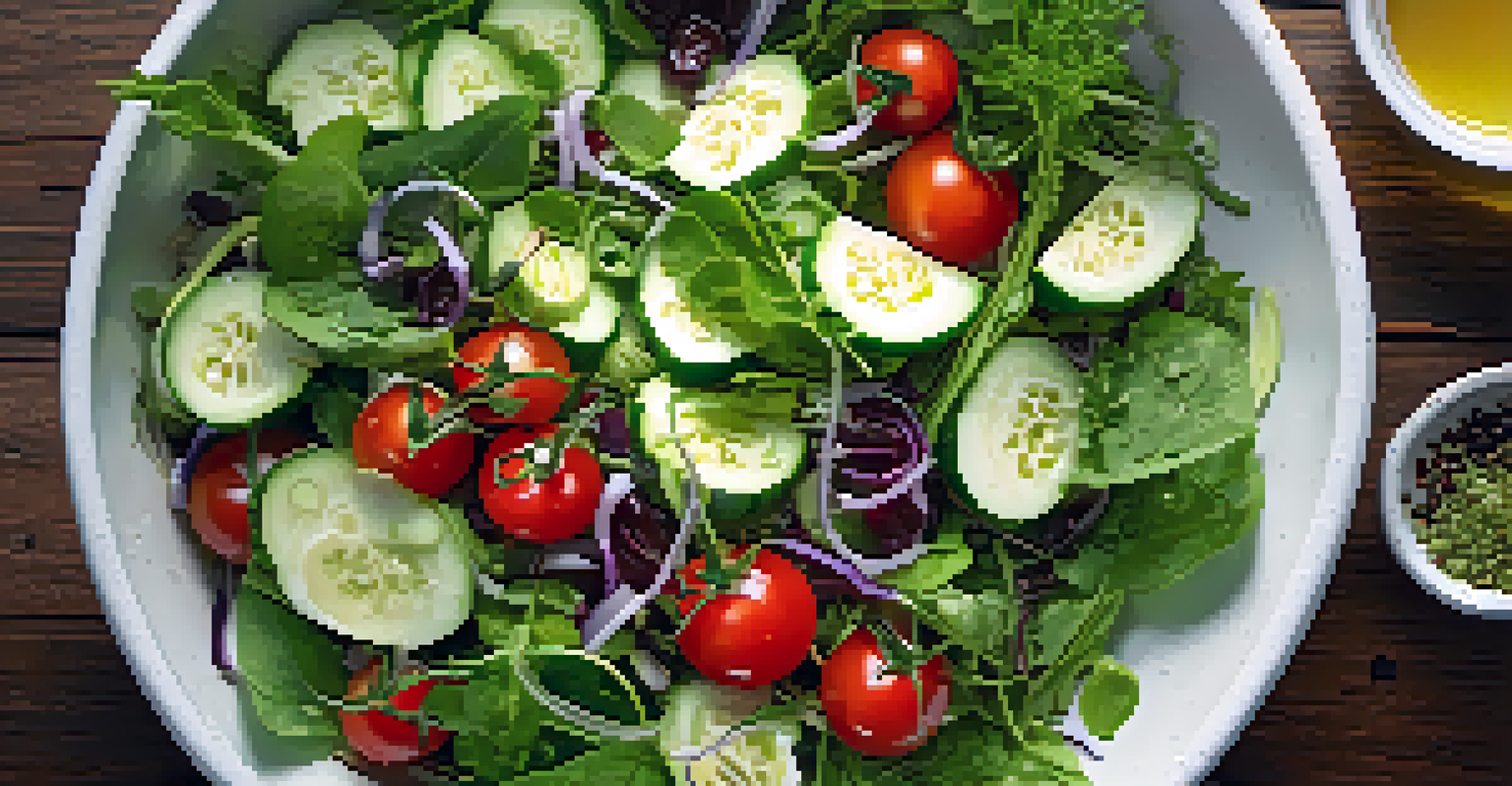Canola Oil: A Vegan-Friendly Choice for Cooking

What is Canola Oil and Why is it Vegan?
Canola oil is derived from the seeds of the canola plant, a type of rapeseed. It's a popular cooking oil due to its light flavor and high smoke point, making it suitable for frying and baking. As a plant-based oil, it aligns perfectly with vegan dietary choices, offering a versatile option for those who avoid all animal products.
Let food be thy medicine and medicine be thy food.
One of the key reasons canola oil is celebrated in the vegan community is its extraction process. Unlike butter or animal fats, canola oil is obtained through cold pressing or refining, both of which are entirely plant-based methods. This ensures that it remains an ethical choice for those committed to veganism.
Moreover, canola oil is often free from additives, making it a clean option for cooking. With its roots firmly planted in agriculture rather than animal husbandry, canola oil represents a sustainable choice for eco-conscious consumers.
Nutritional Benefits of Canola Oil
Canola oil is not just a cooking favorite; it also boasts a favorable nutritional profile. It is low in saturated fat and contains heart-healthy monounsaturated fats, which can help reduce cholesterol levels. This makes it an excellent choice for those looking to maintain a healthy diet without compromising on flavor.

Additionally, canola oil is rich in omega-3 and omega-6 fatty acids, essential fats that our bodies need but cannot produce on their own. These fatty acids play a significant role in brain health and may reduce inflammation, making canola oil a smart addition to a balanced vegan diet.
Canola Oil: A Vegan Favorite
Canola oil is a plant-based cooking oil that aligns perfectly with vegan choices due to its ethical extraction process.
One tablespoon of canola oil contains about 124 calories, making it a calorie-efficient way to add flavor and nutrients to meals. Its nutritional benefits, combined with its versatility, make it a staple in many vegan kitchens.
Cooking with Canola Oil: Tips and Tricks
When it comes to cooking with canola oil, the possibilities are nearly endless. Its high smoke point of around 400°F (204°C) means you can safely use it for frying, sautéing, and even baking without the risk of burning. This makes it a go-to choice for everything from stir-fries to baked goods.
The best and most efficient pharmacy is within your own system.
To make the most of canola oil in your cooking, consider its neutral flavor. This allows it to blend seamlessly into recipes without overpowering other ingredients. For instance, when making a salad dressing, combining canola oil with vinegar, herbs, and spices creates a delicious balance that enhances your greens.
Another tip is to use canola oil for marinades and sauces. Its light texture allows it to absorb flavors easily, resulting in a tasty and well-rounded dish. Whether you're grilling veggies or marinating tofu, canola oil can elevate your vegan meals.
Canola Oil vs. Other Cooking Oils
With so many cooking oils available, how does canola oil stack up against others? Compared to olive oil, which is often praised for its health benefits, canola oil offers a lighter flavor and a higher smoke point, making it more versatile for high-heat cooking. While both are healthy options, the choice depends on your cooking methods and flavor preferences.
Sunflower oil is another alternative, but canola oil typically contains more omega-3 fatty acids, which are crucial for heart health. This makes canola oil a superior choice for those looking to boost their intake of these beneficial fats while cooking.
Health Benefits of Canola Oil
Rich in heart-healthy fats and omega fatty acids, canola oil contributes positively to a balanced vegan diet.
Ultimately, the best cooking oil depends on individual tastes and dietary requirements. However, canola oil’s unique combination of health benefits, versatility, and affordability makes it a standout choice for many home cooks.
Sustainability and Canola Oil Production
Sustainability is a significant concern for many consumers today, and canola oil production is relatively eco-friendly. Canola plants are known for their resilience, requiring less water and pesticide compared to other oilseed crops. This makes canola oil a more sustainable choice for environmentally conscious consumers.
Moreover, many canola oil brands are committed to responsible farming practices, ensuring that their production methods prioritize soil health and biodiversity. By supporting these brands, you are not only choosing a vegan-friendly oil but also contributing to more sustainable agricultural practices.
When purchasing canola oil, look for labels that indicate organic or non-GMO certification to ensure you’re making a choice that aligns with your values. By being mindful of your purchasing decisions, you can enjoy the benefits of canola oil while supporting sustainable farming.
Myths About Canola Oil Debunked
Despite its many benefits, canola oil is often surrounded by myths and misconceptions. One common myth is that canola oil is heavily processed and unhealthy. However, high-quality canola oil is often cold-pressed and minimally processed, retaining its nutritional integrity.
Another misconception is that canola oil is harmful due to its omega-6 content. While it's true that an imbalance of omega-6 to omega-3 fatty acids can be problematic, canola oil has a favorable ratio that can actually support a healthy diet when consumed appropriately.
Sustainable Cooking Oil Option
Canola oil production is eco-friendly, requiring less water and pesticides, making it a sustainable choice for consumers.
By understanding the facts about canola oil, you can make informed choices about its use in your cooking. Dispelling these myths helps elevate canola oil's reputation as a healthy, vegan-friendly cooking option.
Incorporating Canola Oil into Your Vegan Lifestyle
Incorporating canola oil into your vegan lifestyle is easy and delicious. From salad dressings to marinades, this versatile oil can enhance a variety of dishes. You can even use it in baked goods, where it adds moisture without altering the flavor significantly.
Consider swapping out less healthy fats, like butter, with canola oil in your favorite recipes. For example, when making cookies or cakes, using canola oil can give you a lighter texture while keeping the treat moist and flavorful.

Don’t forget to explore the world of oil-based sauces and dips. A simple blend of canola oil, garlic, and herbs can create a quick and tasty sauce to drizzle over roasted vegetables or pasta. By experimenting with canola oil, you can discover new flavors and textures in your cooking.